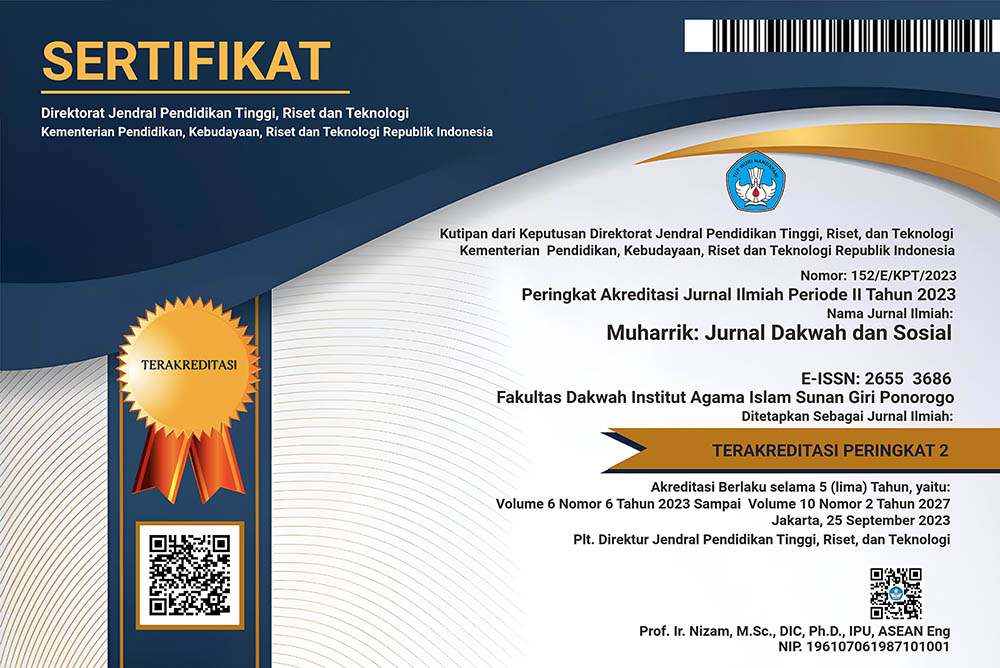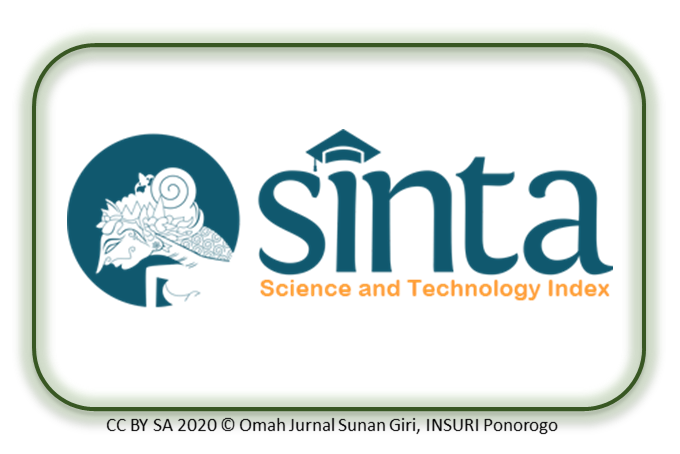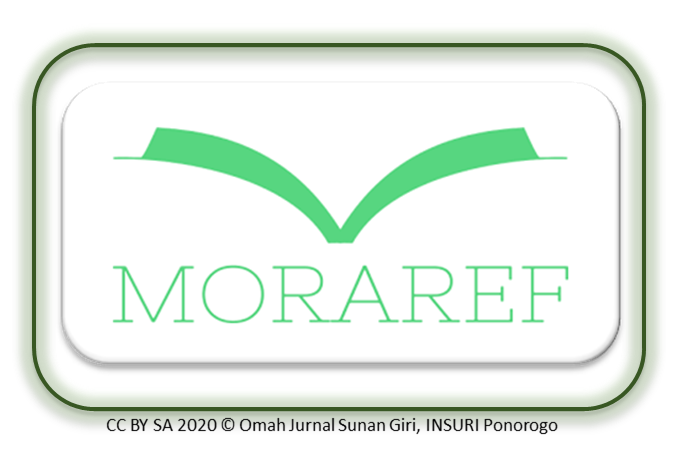Future Prospects for Islamic Political Parties in Indonesia's Democratic Contestation after the 2024 General Elections
Keywords:
Islamic political party, election, politics, prospectAbstract
This research analyzes the prospects of Islamic political parties in Indonesia's democratic contestation after the 2024 elections. Islamic political parties have never been able to compete with nationalist parties in the last four elections. The dominance of nationalist parties is shown in parliamentary contestation and in the presidential and vice-presidential elections, making Islamic parties have no logical choice but to join the coalition of nationalist parties. The future of Islamic political parties has become a polemic because they see their position increasingly squeezed by the strengthening of nationalist parties. This research was conducted using a literature study approach by collecting primary and secondary data from the official government website and supported by secondary data from various media channels such as detik.com and cnbc.com. Data collection begins with field observations to find preliminary data to guide further data collection. The results show that Islamic political parties still have potential prospects if they can optimize several factors, including the demographics of Muslims in Indonesia, Islamic militancy, the close relationship between the ideology of mass organizations and political parties, and public expectations.
.
References
Aditya, N. R. (2023). Flashback of Romahurmuziy: Growing Up in PPP, Corruption and Islah with Party This article was published on Kompas.com with the title "Romahurmuziy Flashback: Growing Up in PPP, Caught in Corruption and Reconciling with Party", Click to read: http. Kompas.Com. https://nasional.kompas.com/read/2023/01/03/09573851/kilas-balik-romahurmuziy-besar-di-ppp-terjerat-korupsi-dan-kembali-islah?page=all
Al-Hamdi, R. (2023). Winning the Islamic Party: Institutional Design for Election Victory (1st ed.). UMY Press.
Al-Hamdi, Ridho. (2022). Nationalist-Islamist Party in a Liberal Ecosystem: The Solidity and Campaign Strategy of the Prosperous Justice Party (PKS) during the 2014 and 2019 Elections. Politika: Journal of Political Science, 13(2), 290-304. https://doi.org/10.14710/politika.13.2.2022.290-304
Argenti, G., Paskarina, C., Darmayanti, N., & Deliarnoor, N. A. (2022). Post-Islamism in Indonesia: Analysis of Islamic Political Party Programs in the 2019 National Elections. Academic Journal of Interdisciplinary Studies, 11(1), 127-136. https://doi.org/10.36941/ajis-2022-0011
Arifianto, A. R. (2023). THE 2024 INDONESIAN ELECTION: A CROSSROADS IN A CONTINUING DEMOCRATIC RECESSION. New Zealand Journal of Asian Studies, 25(2), 37-56. https://www.scopus.com/inward/record.uri?eid=2-s2.0-85180847738&partnerID=40&md5=c9466fdd1dc17e44f5d2391ab2bcace2
Barton, G., Yilmaz, I., & Morieson, N. (2021). Authoritarianism, democracy, islamic movements and contestations of islamic religious ideas in Indonesia. Religions, 12(8). https://doi.org/10.3390/rel12080641
Bourchier, D. M. (2019). Two decades of ideological contestation in Indonesia: From democratic cosmopolitanism to religious nationalism. Journal of Contemporary Asia, 49(5), 713-733.
Ferdinan. (2016). Proven Hajj Corruption, Suryadharma Ali Sentenced to 6 Years in Prison Read the detiknews article, "Proven Hajj Corruption, Suryadharma Ali Sentenced to 6 Years in Prison" in full https://news.detik.com/berita/d-3115925/terbukti-korupsi-ibadah-haji-suryadh. Detik.Com. https://news.detik.com/berita/d-3115925/terbukti-korupsi-ibadah-haji-suryadharma-ali-dihukum-6-tahun-penjara
Fernando, H., Galuh Larasati, Y., Abdullah, I., Jubba, H., Mugni, A., & Persadha, P. D. (2023). The de-existence of Islamic political parties in general elections: A case study of Indonesia as a Muslim-majority country. Cogent Social Sciences, 9(1). https://doi.org/10.1080/23311886.2023.2225838
Fossati, D. (2019). The Resurgence of Ideology in Indonesia: Political Islam, Genre and Political Behavior. Journal of Current Southeast Asian Affairs, 38(2), 119-148. https://doi.org/10.1177/1868103419868400
Haris, M., Yuwanto, Yuwono, T., & Sardini, N. H. (2020). The dynamics and existence of Islamic party in 2019 general election: case study of Prosperous Justice Party (PKS). Indonesian Journal of Islam and Muslim Societies, 10(2), 409-432. https://doi.org/10.18326/IJIMS.V10I2.409-428
Haris, S. (2021). Politicization of religion and the failure of Islamic parties in the 1999 general election. In Elections in Indonesia (pp. 61-76). Routledge.
Hefner, R. W. (2019). Whatever happened to civil Islam? Islam and democratization in Indonesia, 20 years on. Asian Studies Review, 43(3), 375-396.
Henderson, J. V, & Kuncoro, A. (2011). Corruption and local democratization in Indonesia: The role of Islamic parties. Journal of Development Economics, 94(2), 164-180. https://doi.org/10.1016/j.jdeveco.2010.01.007
Herdiansah, A. G., Djuyandi, Y., & Sumadinata, W. S. (2019). Extending flow politics in electoral contest: An insight of Indonesia's democracy in the post-2014. Central European Journal of International and Security Studies, 13(4), 518-545. https://www.scopus.com/inward/record.uri?eid=2-s2.0-85086091035&partnerID=40&md5=4369b6e10b8e66c220cc83e2597e4af4
Klarer, M. (2023). An introduction to literary studies. Routledge.
Law Number 2, Pub. L. No. No. 2 of 2011 (2011). https://jdih.kpu.go.id/data/data_uu/UU_2011_2.pdf
kpu.go.id. (2023). DPT for 2024 Domestic and Overseas Elections 204.8 Million Votes. https://www.kpu.go.id/berita/baca/11702/dpt-pemilu-2024-nasional-2048-juta-pemilih#:~:text=Jakarta%2C kpu.go.id,2%2F7%2F2023).
Lane, M. (2024). 2024/36 "The Aftermath of the 2024 Indonesian Elections: A Season for Speculation" by Max Lane.
Mayrudin, Y. M., Nurrohman, B., Utami, W. K., & Hikmawan, M. D. (2021). Discursive Political Environment in Indonesian Political Parties: A Study on Partai Kebangkitan Bangsa (PKB). In H. A. & J. K. (Eds.), E3S Web of Conferences (Vol. 277). EDP Sciences. https://doi.org/10.1051/e3sconf/202127701004
Mietzner, M. (2009). Indonesia's 2009 Elections: Populism, Dynasties and the Consolidation of the Party System. Sydney: Lowy Institute for International Policy, May, 1-24.
Mietzner, M. (2013). Money, power, and ideology: Political parties in post-authoritarian Indonesia. NUS press.
Miichi, K. (2023). Indigenizing Islamism in Indonesia: Prosperous Justice Party's Approaches Towards Traditionalist Muslims. Politics, Religion and Ideology, 24(1), 120-133. https://doi.org/10.1080/21567689.2023.2190893
Monavia Ayu Rizaty. (2023, March). Majority of Indonesia's Population is Muslim in 2022. Dataindonesia.Id. https://dataindonesia.id/varia/detail/mayoritas-penduduk-indonesia-beragama-islam-pada-2022
Nastain, M., Abdullah, I., Qodir, Z., & Jubba, H. (2023). The Failure of the Islamic Party in Indonesia to Win the 2004-2019 Direct General Elections. Politicon: Journal of Political Science, 5(2), 195-226. https://journal.uinsgd.ac.id/index.php/politicon/article/view/26139/9565
Nastain, M., Abdullah, I., Qodir, Z., Jubba, H., & Cipto, B. (2024). Cultural Barrier in the Regeneration Process of Islamic Political Party in Indonesia. Peuradeun Scientific Journal, 12(2), 717-740. https://doi.org/10.26811/peuradeun.v12i2.1104
Park, J. H. (2021). STUCK in PLACE? NORMALIZATION and the CHANGING VOTER PROFILE of INDONESIA'S ISLAMIST PROSPEROUS JUSTICE PARTY. Journal of East Asian Studies, 21(3), 449-475. https://doi.org/10.1017/jea.2021.21
Qodir, Z., & Hefner, R. W. (2024). DEBUNKING THE MYTH OF ISLAMIC PARTIES Political Ideology and Electoral Contestation in Indonesia during the Lead-up to the 2024 Election. Journal of Indonesian Islam, 18(1), 180-205. https://doi.org/10.15642/JIIS.2024.18.1.180-205
Rasyid Baswedan, A. (2004). Political Islam in Indonesia Present and Future Trajectory. Asian Survey, 44(5), 669-690. http://www.washingtoninstitute.org/watch/Policy
Romli, L. (2020). Electoral Power Structure of Islamic Parties in Reform Era Indonesia. Indonesian Politics: Indonesian Political Science Review, 5(2), 192-213. https://doi.org/10.15294/ipsr.v5i2.22865
Rosyadi, K. (2020). Mystification of the highest power: A case of Indonesia. RUDN Journal of Sociology, 20(3), 498-508. https://doi.org/10.22363/2313-2272-2020-20-3-498-508
Saputro, R. H., Anggoro, T., Muslim, S., Wardani, I. U., Fatmawati, E., Yusuf, M., Prasetyo, D., & Yusuf, M. A. (2023). Gaining Millennial and Generation Z Vote: Social Media Optimization by Islamic Political Parties. Res Militaris, 13(1), 323–336. https://www.scopus.com/inward/record.uri?eid=2-s2.0-85142019751&partnerID=40&md5=a59ad7389a33357c32a29b07aa7086f1
Sutjipto, V. W., Sumartias, S., Hafiar, H., & Dewi, E. A. S. (2023). Political Communication Strategies of Islamist Parties as Educational Platforms for PKS Women Politicians. Journal of Social Studies Education Research, 14(4), 108-131. https://www.scopus.com/inward/record.uri?eid=2-s2.0-85180713893&partnerID=40&md5=98ac642d439206d5a6e9eb9f848544a7
Taufani, M. R. I. (2024). KPU announces election results: PDI-P Number 1, Golkar 2nd, Gerinda 3rd. CNBC Indonesia. https://www.cnbcindonesia.com/research/20240320210210-128-523829/kpu-umumkan-hasil-pemilu-pdi-p-nomor-1-golkar-ke-2-gerinda-ke-3
Tomsa, D., & Ufen, A. (2012). Party Politics in Southeast Asia. Party Politics in Southeast Asia. https://doi.org/10.4324/9780203080689
Ufen, A. (2008). From flow to dealignment: Political parties in post-Suharto Indonesia. South East Asia Research, 16(1), 5-41. https://doi.org/10.5367/000000008784108149
Ufen, Andreas. (2008). Political party and party system institutionalization in Southeast Asia: Lessons for democratic consolidation in Indonesia, the Philippines and Thailand. Pacific Review, 21(3), 327-350. https://doi.org/10.1080/09512740802134174
Ufen, Andreas. (2012). Party systems, critical junctures, and cleavages in Southeast Asia. Asian Survey, 52(3), 441-464. https://doi.org/10.1525/as.2012.52.3.441
Warburton, E. (2020). Deepening polarization and democratic decline in Indonesia. Political Polarization in South and Southeast Asia, 17.
Downloads
Published
Issue
Section
License
Copyright (c) 2025 M Nastain, Muhammad Chairul Huda, Catur Nugroho, Burhan Yusuf Habibi

This work is licensed under a Creative Commons Attribution-NonCommercial 4.0 International License.
The author(s) retain/s the copyright and grant/s Muharrik: Jurnal Dakwah dan Sosial the first publication rights licensed under the Creative Commons Attribution-NonCommercial 4.0 International (CC BY-NC 4.0) , which allows others to access (search, read, download and quote), share (copy and redistribute the material in any media or format) and adapt (mix, modify and develop) works for legitimate non-commercial purposes, with recognition of the authorship of the work and its initial publication in this journal.












